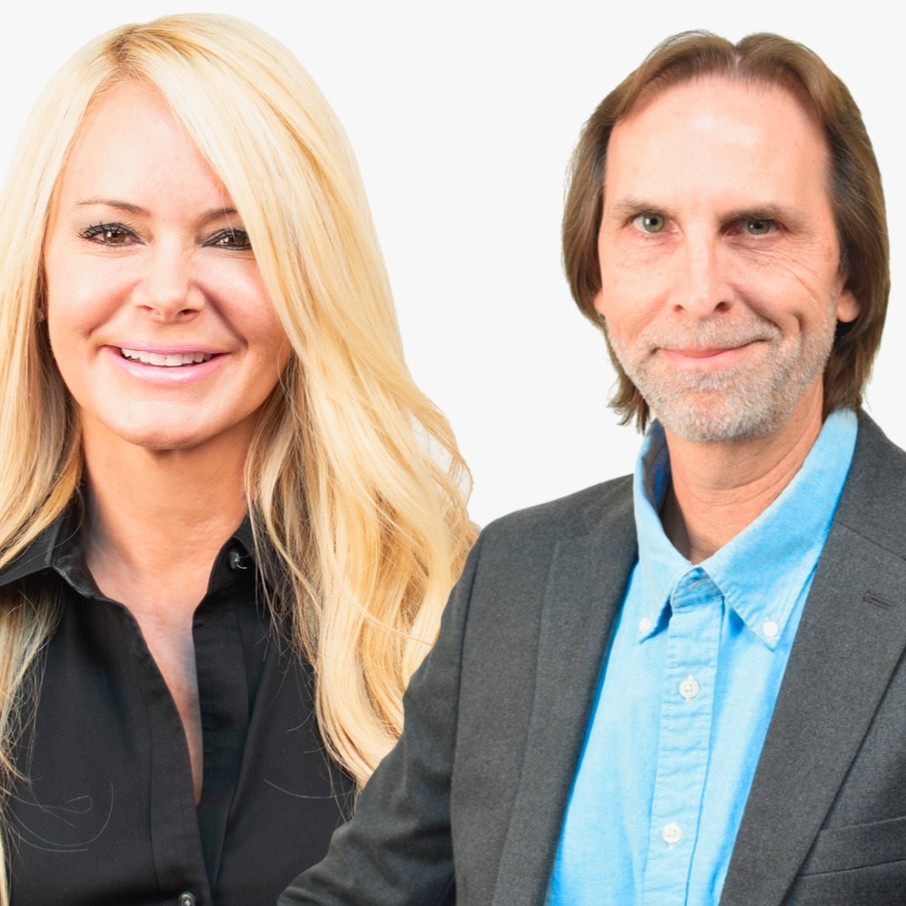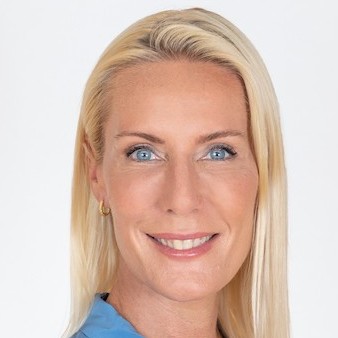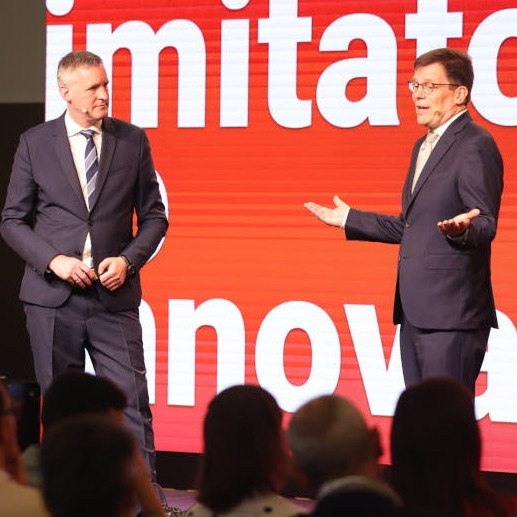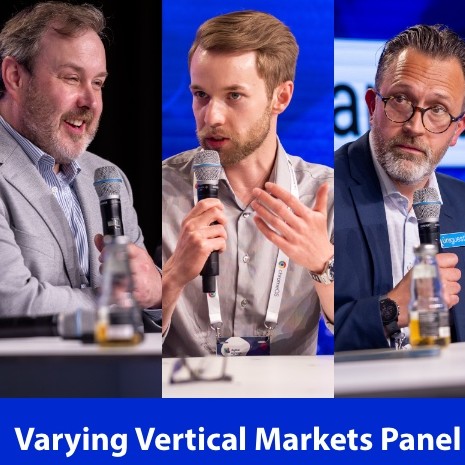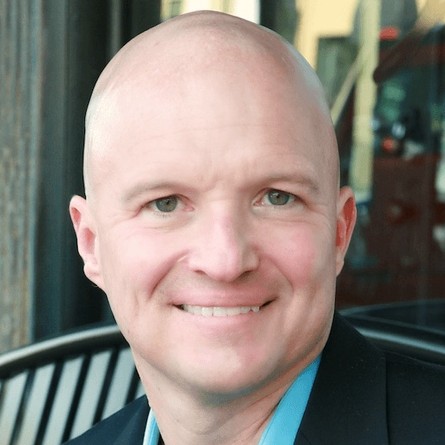Joe Giebel, Poppulo
Description
The 16:9 PODCAST IS SPONSORED BY SCREENFEED – DIGITAL SIGNAGE CONTENT
When I was buzzing around the InfoComm trade show earlier this year, I stopped at one stand for a chat, looked at the next stand over, and saw some familiar faces from Poppulo - the rebranded name for a company long known in digital signage industry circles as Four Winds Interactive.
I went over and got caught up on what the company was up to and why it was showing at InfoComm, as I had grown in recent years to regard Poppulo - right or wrong - as being primarily focused on omnichannel workplace communications.
I was mostly wrong, though I think it is fair to say that in the wake of a private-equity backed merger of Four Winds with an Irish company that did employee communications, there was marketing more noise for at least a while on the workplace side.
David Levin, the co-founder and longtime CEO of Four Winds, stepped back from that role almost a year ago now, and I had been wanting to do a podcast with new CEO Ruth Fornell, whose background was well outside the signage and workplace comms industries. After a preliminary chat, and me saying I'd poke away at her about digital signage stuff, she suggested I'd be in better hands with Joe Giebel, who has been with the company almost 20 years and is its Senior VP of Digital Signage.
Joe and I get into a bunch of things in our chat, including the journey of blending technologies and culture, and the shifting needs and profiles of customers.
Subscribe from wherever you pick up new podcasts.
TRANSCRIPT
Joe, nice to catch up with you. It's been a while. Can you tell me what your role is at Poppulo?
Joe Giebel: Yeah, absolutely. My current role is Senior Vice President of Digital Signage, which is a fresh title for me. I'm coming out as a vice president of sales for America's role, where I've been fortunate to lead a number of our sales teams.
For those who don't know Poppulo, there, a lot of the digital signage folks will probably know you or know the company more as Four Winds Interactive, but that changed, what about five, six years ago now?
Joe Giebel: That's right. I think we did that in 2021. So not too long ago, but, yeah, let me give a little bit of a history. Four Winds Interactive was founded in 2005 as a digital signage company and remains so, but right around 2020, we started looking at different opportunities to enhance our offering, and made a couple of acquisitions. One of those was a company called Poppulo, which was the best-in-class enterprise, internal communications tool. So we brought them into the mix and when we did that, we started to look at the names, like how do we go to market and how do we want to do business as, and so we started doing market studies and it turns out that the name Poppulo, which loosely comes from a Latin term for the term “people” resonated and we decided to change the name to Poppulo.
Four Winds Interactive serves as a parent company. We do business as Poppulo and the name Four Winds Interactive was always interesting and people wanted to know what's the origin of that name and its significance, and there wasn't a big story there. So I think we were open to considering a new brand and look and feel, and that's the story, Dave.
Yeah, if we go way, way back to almost 20 years ago, Four Winds kind of got its start with those little semi-electronic touch panels that you would play back samples of music, right?
Joe Giebel: That is correct, and they were dealing with specialty media. So there was a company called, Four Winds Trading. That company was dealing with specialty media and a lot of it had to do with native tribes. So the Four Winds related there a little bit more. During that business, they started to think about how do we get loyalty around the distribution of our media titles and different things that we're distributing, and of course, screens were new at the time and media in an interactive format is very engaging, and so they were looking at how we merchandise this with technology?
And out of that was born the concept of digital signage and Four Winds Interactive.
You go back, I believe right to the beginning to the rented mansion house in downtown Denver, right?
Joe Giebel: I actually predated the mansion where we had a corner of the warehouse, for our sister company, in Arvada, Colorado, and, yeah, that was in 2005. I think I was certainly a single digit, I think I was the fifth employee in the company and I got to be there from the beginning and started to see what markets will digital signage be valuable in and, where should we target people and it was an incredible time.
So if we go to today, I bumped into the Poppulo stand at Infocomm, and admittedly, and I said it at the time, I was kind of surprised to see the folks there because you being a little bit absent, I would say from the trade show circuit, or at least from the circuit that a lot of the other CMS software companies show at, so it struck me as almost like the company was getting back into digital signage a little more seriously, but I was told, and I suspect you'll say the same thing that no, we never left.
It's just that, maybe we're kind of amping up marketing again.
Joe Giebel: Yeah, I would agree with that, we never left. When we went through our acquisition period, we had a lot of great new tools and we were looking at how do we adjust what we're putting to the market and what are the right arenas to play in. Distracted is not the right word, but it's probably close. We were dealing with a lot of things and not to lie about trade shows following the pandemic. We're a little bit quieter and I think potentially we were being smart with our budget and certainly had some areas to apply it.
We missed the trade show circuit, and this year, we're jumping back into it and it feels good.
My impression, and you can correct me was post-acquisition of Poppulo and kind of merging the companies. It seemed reflected in part in online marketing and so on, or what I would hit on the website that you were focusing more on workplace experience and, maybe not making as much noise around digital signage, perhaps because that was established.
Joe Giebel: Yeah, we brought in these new channels. We started to look at the workplace and the way we communicate with employees in a broader sense, and I think you could look at one of our major focus areas is the workplace and employee experience, and we started to say: as the world moves to remote work, and then we've kind of swung back to hybrid, and it looks like, there have been some big splashes in a full return to office by some major organizations, digital signage was a channel that we think is extremely effective in pushing a message, but we wanted to be able to reach people in more ways, and we do that now through a multi-channel approach, which includes the ability to reach employees by email, the ability to land messaging and collaboration tools, and still maintain the scale and governance that you want from an enterprise tool.
So I'd say we're multi-channel. Digital signage is near and dear to my heart, and I think we're about to see a major pushback into how we drive that employee experience through digital displays, as more and more people come back to the office, it becomes a mandate.
Was it a little worrisome because of the whole idea of, okay, everybody's just going to work, from home from now on and I saw lots of software companies doing the equivalent of desktop screensavers, ways to push messaging to people who are now working at home instead of coming into an office.
So did you guys have to kind of look at things and go, okay, this could be a problem if we're not kind of broadening our offer?
Joe Giebel: I think we saw an opportunity and, one, we saw an opportunity to make the digital signage for those frontline workers and the people that didn't have that option to go home even stronger, and at the same time we always had that question. How do we better engage people who aren't in the offices where we are putting our displays, maybe their field workers, maybe they travel constantly, or maybe they work from home?
I think that really brought it to the forefront. Luckily, we were in the process of figuring out how to extend or create extensibility within the platform, ahead of everybody leaving office buildings. So we felt like we had a good foot forward, and we're all in on how to provide the best possible platform to reach your audience now. I struggle to say we're entirely workplace-focused because we also have a lot of people doing customer-facing things.
So it truly is understanding your audience, what are the things you want to enable or shape their behavior with and what's the best way to reach them, we really want to be that platform for our clients and it's about value, you know, what is it you hope to affect or inform and what's the best way to do it.
When you say customer-facing, how do you define that?
Joe Giebel: Yeah, I need to get information in front of people who may purchase from me or interact with my solution. So I look at my clients and you know the classic use case is a retail environment. Obviously, you've got customers coming through a retail environment.
What I don't think always gets thought of is that lobby of big headquarters. Many of our clients are bringing customers and. partners through their spaces that are customer-facing as well or major delivery centers. If you've got people building very expensive items, they often have delivery centers where they b


